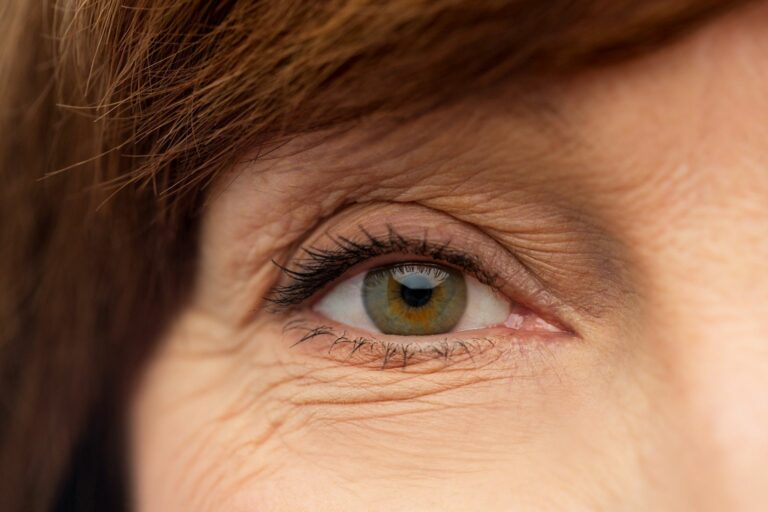Macular degeneration (AMD) is the leading cause of age-related vision loss in the United States, affecting over 11 million people – a number expected to double by 2050. This condition can severely impair your central vision, making everyday tasks like reading, driving, and recognizing faces difficult.
Fortunately, early detection can help preserve your sight. That’s why it’s crucial to understand the risk factors and symptoms. Take the quiz below to find out if you may be at risk for AMD and learn more about how to protect your vision.
Understanding Age-Related Macular Degeneration
AMD affects the macula, the part of the eye responsible for sharp, central vision. As the macula deteriorates, patients may experience blind spots and vision distortion. If left untreated, AMD can result in permanent vision loss. There are two main types of AMD:
Dry AMD
Dry AMD accounts for over 80% of cases. It develops gradually as yellow deposits accumulate in the macula, causing blurry vision and central blind spots over time.
Wet AMD
Wet AMD progresses faster and is more severe. It occurs when abnormal blood vessels leak fluid into the macula, leading to sudden and significant vision changes.
“Many patients don’t realize how quickly wet AMD can steal their sight,” explained Dr. McGregor Lott, retinal specialist at Florida Eye Specialists. “Recognizing early signs and seeking treatment immediately is key to preventing severe vision loss.”
What Are the Early Signs of AMD?
Detecting AMD early can help prevent further damage to your vision. “It’s critical not to ignore changes in your vision,” said Dr. Lott. “The sooner we can diagnose AMD, the better your chances of preserving your sight.” Some warning signs include:
- Blurred or distorted vision
- Blind spots in the center of your vision
- Difficulty recognizing fine details or colors
- Trouble seeing in low-light environments
- Straight lines appearing wavy (common in wet AMD)
What Are the Risk Factors for AMD?
Age is the major risk factor, as AMD mainly affects patients 55 and older. However, a genetic condition can lead to a form of macular degeneration in younger patients, so it’s essential to know your family history. Additionally, tobacco use has been linked to an increased risk of AMD development.
If you already have macular degeneration in one eye, you are at an increased risk of developing it in your other eye, which can happen at any time. At Florida Eye Specialists, we recommend that our patients regularly monitor their vision with an at-home eye test known as the Amsler grid. It’s a quick and easy way to notice vision changes between appointments.
Managing AMD With Eye Drops & Treatment Options
While there is no cure for AMD, treatment options can help slow its progression and preserve vision.
Maintaining a healthy lifestyle is crucial for dry AMD. Diets rich in leafy greens, fish, antioxidants, and AREDS-based eye vitamins can help manage the condition.
“Treatment for wet AMD involves a commitment to regular eye injections, which prevent abnormal blood vessels from leaking fluid into the retina,” said Dr. Lott. “Missing even one appointment can negatively affect your vision.”
Special eye drops are also available to help alleviate discomfort related to AMD. Dr. Lott emphasizes the importance of staying on top of treatment plans for patients managing both AMD and dry eye.
Don’t Let AMD Steal Your Vision
Age-related macular degeneration can have a significant impact on your life, but early detection and treatment can help preserve your sight. Knowing the symptoms and monitoring your vision regularly can make all the difference.
Take the quiz below to see if you may be at risk for AMD and learn how to protect your eye health. If you notice any vision changes, schedule an appointment with Florida Eye Specialists today.
Take the Quiz: Are You At Risk for Age-Related Macular Degeneration?
AMD
AMD is the most common cause of age-related vision loss. Answer the questions below to find out if it’s time for you to request an eye exam to talk about your eye health and treatment options.

Question
Your answer:
Correct answer:
Your Answers
